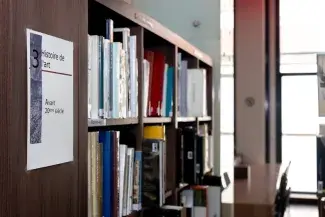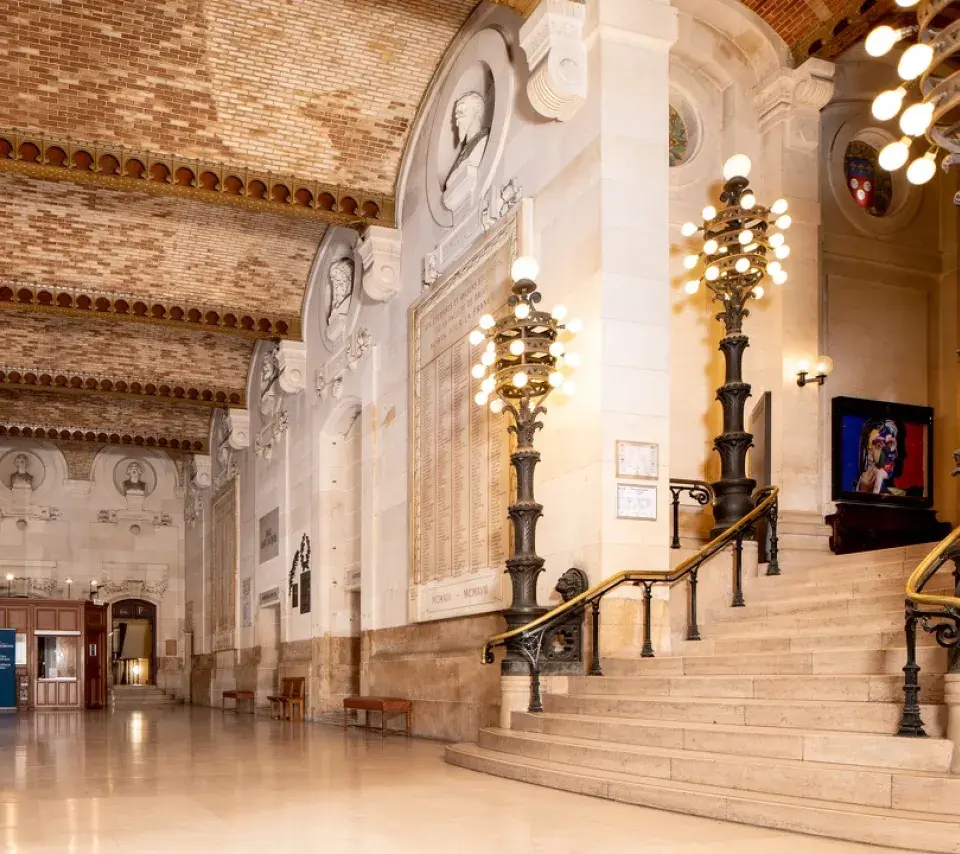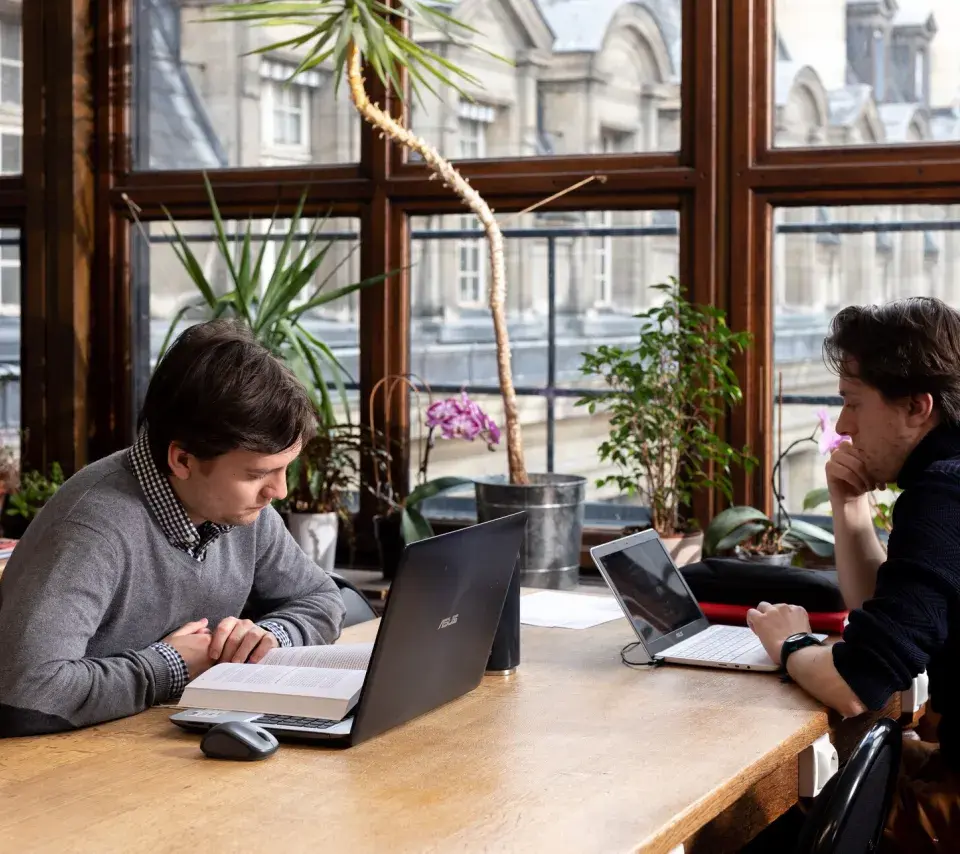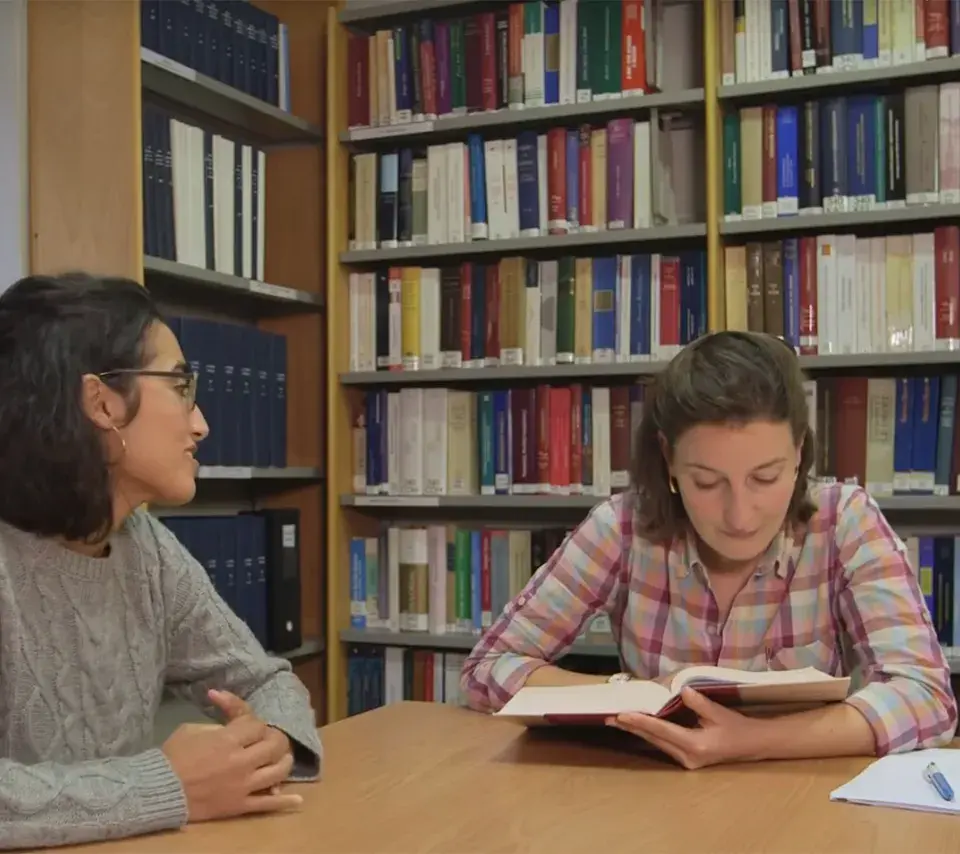
Modules for Becoming Autonomous in the Library
Summary version in English
Department: SCD (University Library Department)
Project Leaders: Anne GUICHARD-CAZENAVE, Imelda LEMOING
Audience: L1 (AES, Economics, History, Philosophy)
Period: 2019 and beyond
A long-term approach

"Becoming autonomous in the library is the key to success at university. This project allows students to familiarize themselves with the offered services, available resources, and documentary research techniques. Initially designed for the AES department, it has gradually expanded to other, and it's not over yet!"
Anne GUICHARD-CAZENAVE and Imelda LEMOING
Context
Training users in documentary research techniques is a mission of university libraries, but it is practically impossible to train all L1 enrolled students during the first months of the year. In addition, it is sometimes difficult to fit a face-to-face training session into the timetable for methodology tutorial sessions. To reach as many students as possible starting from October, a shift to distance learning seemed appropriate.
Solution implemented
This is an asynchronous distance learning program. The student is invited to follow a path organized into four modules consisting of videos, quizzes and summary cards:
- Discovering the service offerings,
- Finding a document,
- Finding an online resource,
- Optimizing research.
Objectives
Originally, the goal was to allow students who did not benefit from the Diplodoc face-to-face training in documentary research techniques to receive training. We wanted all students in the relevant components to receive documentary research training in the first semester.
Project Overview
In 2021, we had 1,670 active students on the platform (i.e. 48% of enrolments) and 82% of participants who completed the course and responded to the feedback survey have a positive image of the project. According to one of the testimonials, "this training is really useful, almost indispensable, because it enables us to carry out relevant research and to know how to present it correctly in our work, something that is not covered during classroom".
As the project progresses, improvements are made to the editing tools used for the interactive videos, resulting in a very satisfactory visual and sound quality that was clearly appreciated by the students: "I liked the sequence and the quizzes too. The videos are well done and interesting, and the fact that the quizzes are short makes us want to do them and pass them even more", writes one student.
In addition to these positive results, we can see that Bibliob@se really needs the support of lecturers and departments to communicate with students and ensure their attendance. Without this, the attendance remains low. Participation rates vary greatly from one discipline to another: 68.5% in History, 55% in AES, 23% in Philosophy... but only 8% in Economics.
In 2022, v2 recorded 1229 active students and 1152 fully completed modules. As for v3, launched in October 2023, which considered almost all suggestions made by students who had completed the feedback survey, we had 1376 active students and 1265 fully completed modules.
Perspectives
Bibliob@se videos can be readapted into small educational modules for the library’s “Toolbox”, and this model will therefore serve as a basis for other training programmes. It can also be useful during periods of confinement, as was the case in 2020 with Law L1. Student feedback provides valuable suggestions that will allow us to continue refining the project.
Contenus liés

Winter School Ancient Cities
Un projet international en Archéologie sur les cités grecques et romaines Composante : UFR 03...

Méthodologie pour le mémoire de recherche
Vidéos et conseils pour clarifier les exigences du Master en Histoire de l'art Composante...

Vidéos pour clarifier le parcours doctoral
Expliquer simplement les mécanismes de prise en compte des ECTS Composante : École doctorale de...